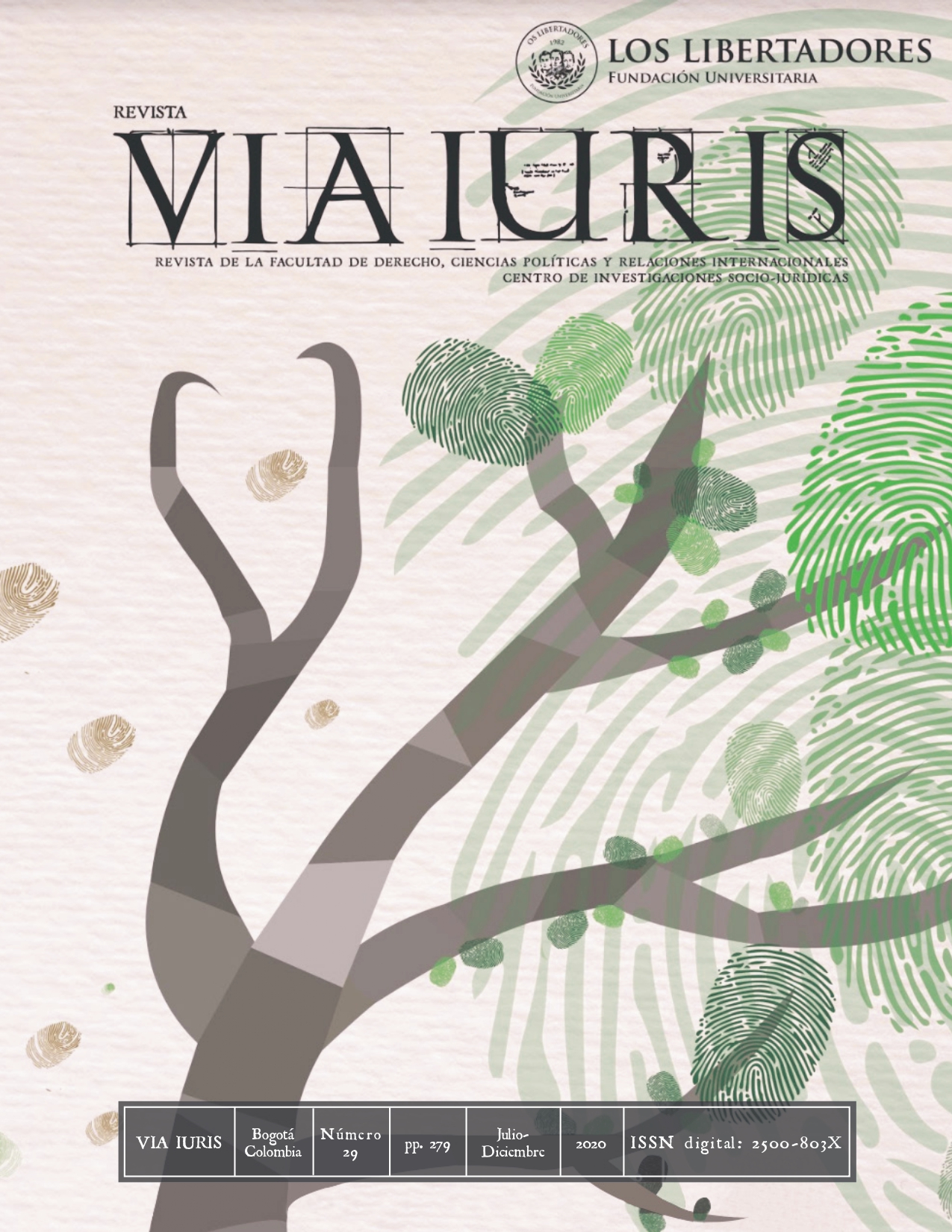Comunidades indígenas do Cauca e participação política: 1991, 1992, 1994, 1998
DOI:
https://doi.org/10.37511/viaiuris.n29a4Palavras-chave:
Participação política; comunidades indígenas; eleições; Constituição Política; Cauca.Resumo
Este estudo centra a sua atenção nas comunidades indígenas do departamento de Cauca, nos processos de luta e organização que têm sido levados a cabo permitindo a sua presença em cenários de participação política, negociação e processos de ligação para a tomada de decisões das populações indígenas na nação, O objectivo é analisar e contrastar a evolução da participação política destas comunidades no processo eleitoral que teve lugar desde a criação da Constituição de 1991 até 1998, enfatizando apenas as eleições da Assembleia Constituinte, Senado, Câmara dos Representantes, Gabinete do Governador e Câmaras Municipais, o que será um ponto de vista para referenciar o progresso da participação. Este artigo está estruturado utilizando métodos quantitativos e qualitativos, primeiro através da revisão dos dados estatísticos como elemento fundamental para o diagnóstico e tomada de decisão dos actores políticos neste caso, é necessário construir unidades de análise e variáveis que nos permitam medir a participação política nos processos eleitorais; Em contraste com a análise documental, é possível estabelecer indicadores que mostram a população que vai às urnas, os níveis de educação dos candidatos, o aumento e a diminuição do número de lugares obtidos.
Downloads
Downloads
Publicado
Edição
Seção
Licença

Este obra está licenciado com uma Licença https://creativecommons.org/licenses/by-nc-sa/4.0/deed.esCreative Commons Atribuição-NãoComercial-CompartilhaIgual 2.5 Colômbia.


